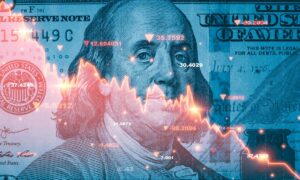Navigating Personal Loans During Economic Uncertainty
Financial security is essential, especially in times of economic uncertainty. Concerns about a recession can leave us questioning the best steps to stabilize our cash flow. One option that might cross your mind is taking out a personal loan. The decision isn’t straightforward; it greatly depends on your unique circumstances.
Understanding Recession Dynamics
A recession signals a period of economic contraction characterized by declining GDP, rising unemployment, and reduced consumer spending. As businesses face decreased demand, many may scale back, leading to layoffs or closures. Consequently, consumers often tighten their budgets and postpone major purchases or home projects.
Recessions can arise from various factors, including economic or political instability, both domestically and internationally. In unprecedented times, such as during a global pandemic, the landscape can shift rapidly, making it challenging to assess financial risks accurately.
The Federal Reserve’s Role
In these turbulent times, the Federal Reserve typically intervenes to stabilize the economy. By lowering the federal funds rate—the interest rate at which banks lend to one another—they encourage financial institutions to reduce their lending rates, thus easing borrowing costs for consumers and businesses. This can make taking out a personal loan more attractive, as you might secure a lower rate compared to periods of economic stability.
However, it’s imperative to shop around. Lenders vary considerably in terms of rates and loan terms, so thorough comparison shopping is key to finding the best deal tailored to your financial situation.
Weighing the Risks
While a lower loan rate can be enticing, borrowing during a recession comes with specific pitfalls to consider:
-
Job Security: Economic downturns often result in higher unemployment. If your job is at risk, borrowing could leave you vulnerable. Should unexpected layoffs occur, your household income may take a severe hit, making it difficult to meet additional financial commitments.
-
Increased Expenses: Adding a loan payment can strain your budget, especially if your income decreases. Missing payments or accruing late fees can harm your credit score, compounding financial troubles.
- Difficulty in Securing Loans: Lenders often tighten their standards in a recession, making it more challenging to qualify for a loan. You may need to demonstrate consistent income and low existing debt to secure favorable terms.
Smart Borrowing Choices
Despite the risks, borrowing during a recession might be a prudent choice if you have stable employment and aim to simplify high-interest debt. For instance, a personal loan can help consolidate credit card debt, potentially saving you money on interest and streamlining your payments.
Additionally, if faced with an unexpected expense, a personal loan can spread your payments over two to seven years, increasing your financial flexibility.
Assessing Your Financial Situation
Before deciding to take out a personal loan during recessionary times, carefully assess your employment stability and overall financial picture. Taking the time to review your budget is crucial—ensure you can accommodate another monthly payment without strain.
Proactive Financial Planning
If you’re anxious about potential economic downturns, there are proactive steps you can take today:
- Build Your Emergency Fund: An enhanced cushion can provide security against income disruptions.
- Pay Down High-Interest Debt: Tackle burdensome debt that may burden your budget during tough times.
- Diversify Your Income Streams: Consider side hustles or launching a small business to create additional financial security.
By fortifying your financial position and exploring smart borrowing options, you can navigate economic uncertainty with greater confidence and security.
This approach helps to enhance your financial resilience, empowering you to tackle whatever challenges may arise head-on.

